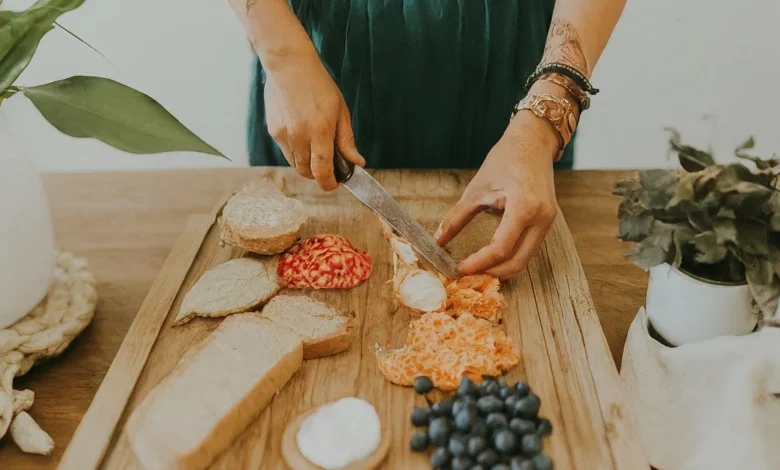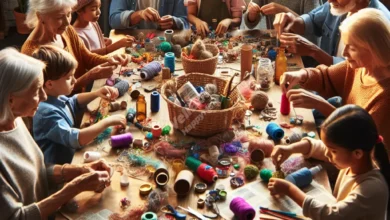Zero Waste Events: Plan Eco-Friendly Parties & Celebrations

Introduction
Have you ever felt guilty about the mountain of trash left after a party? You’re not alone. Many people are now turning to zero waste events as a solution. These are celebrations that aim to send little or no waste to landfills.
Why should you care? Sustainable celebrations are not just good for the planet. They can also be kinder to your wallet and more meaningful for your guests. In this post, we’ll show you how to throw an amazing party that leaves a lasting impression, not a lasting impact on the environment.
Understanding Zero Waste Principles
Before we dive into party planning, let’s look at the core ideas behind zero waste:
- Refuse: Say no to things you don’t need.
- Reduce: Use less of what you do need.
- Reuse: Find new ways to use items again.
- Recycle: Turn waste into new products.
- Rot: Compost organic matter.
These ideas can help you make smarter choices when planning your event. They’ll guide you in picking decorations, food, and activities that create less waste.
Pre-Event Planning
Setting clear goals is the first step in planning a zero waste event. Ask yourself: How much waste do you want to avoid? What areas can you improve the most?
Next, choose a sustainable venue. Look for places that:
- Use renewable energy
- Have good recycling systems
- Offer reusable dishes and cutlery
- Are easy to reach by public transport
Creating a waste management plan is crucial. Decide how you’ll handle different types of waste. Will you compost food scraps? How will you recycle paper and plastic?
Invitations and Communication
When it comes to invites, digital is best. E-invites create no physical waste and are easy to update. If you prefer paper, choose recycled options or plantable seed paper.
Let your guests know about your zero waste goals. You might say:
“We’re trying to make this celebration as eco-friendly as possible. We’d love your help in reducing waste. Please bring a reusable water bottle if you can!”
Encourage guests to join in. They might have great ideas to share!
Decorations and Ambiance
Creating a festive atmosphere doesn’t have to mean buying single-use decorations. Here are some eco-friendly alternatives:
- Use potted plants or flowers instead of cut blooms
- Hang reusable fabric banners or bunting
- Create centerpieces from natural materials like pinecones or driftwood
- Light up the space with LED fairy lights or beeswax candles
Get creative with DIY decorations. Turn old jars into candle holders. Make garlands from dried orange slices. These touches add a personal flair and reduce waste.
Food and Beverages
The key to zero waste food is smart planning. Here’s how to do it:
- Source local and organic ingredients when possible
- Plan portions carefully to avoid leftovers
- Set up a composting station for food scraps
- Offer zero waste drink options like infused water in large dispensers
Let’s compare traditional party food with zero waste options:
| Traditional | Zero Waste Alternative |
|---|---|
| Individually wrapped snacks | Bulk snacks in reusable containers |
| Disposable water bottles | Water station with reusable cups |
| Single-use plastic straws | Metal or paper straws, or no straws |
| Store-bought cake | Homemade desserts using local ingredients |
Tableware and Serving
Ditch the disposables! Reusable plates, cutlery, and glassware are the way to go. If you don’t have enough, consider:
- Borrowing from friends or family
- Renting from a party supply company
- Using compostable options as a last resort
Set up clearly labeled waste stations. Include bins for:
- Recycling
- Composting
- Reusables (for dirty dishes)
- Landfill (as a last resort)
Make sure these stations are easy to find and use. Add clear signs with pictures to help guests sort correctly.
Entertainment and Activities
Plan eco-friendly games and activities that create memories, not waste. Some ideas include:
- Nature scavenger hunts
- DIY craft stations using recycled materials
- Plant potting activities
- Zero waste cooking competitions
For party favors, think experiences over things. Offer:
- Seed packets for growing herbs or flowers
- Digital photo albums of the event
- Homemade treats in reusable containers
Remember, the best memories come from shared experiences, not material gifts.
Post-Event Considerations
The party’s over, but your zero waste journey isn’t! Here’s a simple checklist for a sustainable cleanup:
□ Sort recyclables carefully
□ Compost any food scraps
□ Wash and store reusable items
□ Donate leftover supplies
□ Clean up using eco-friendly products
Take time to evaluate your efforts. What worked well? Where can you improve next time? This reflection helps you grow your zero waste skills.
Overcoming Challenges
Let’s address some common concerns about zero waste events:
Q: Won’t it be more expensive?
A: While some eco-friendly options cost more upfront, they often save money in the long run. Reusable items last for many events.
Q: What if guests don’t cooperate?
A: Clear communication is key. Most people are happy to help when they understand why it’s important. Lead by example and make it easy for guests to participate.
Q: Is it really possible to have zero waste?
A: Perfect zero waste is challenging. The goal is to reduce waste as much as possible. Every little bit helps!
Remember, you don’t have to do everything at once. Start with small changes and build from there. Balance is important – make sustainable choices without sacrificing guest comfort.
Case Studies
Let’s look at some real-life examples of successful zero waste events:
- Sarah’s Wedding: Sarah and her partner used digital invites, rented dishware, and asked for charitable donations instead of gifts. They composted all food waste and recycled decorations.
- Community Festival: A local town replaced disposable cups with a reusable cup system. Visitors paid a small deposit for a cup, which they could return or keep as a souvenir.
- Corporate Conference: A tech company went paperless, used an event app, and served only plant-based meals. They reduced waste by 90% compared to previous years.
These examples show that zero waste is possible in various settings. Each event faced challenges but found creative solutions.
Conclusion
Planning a zero waste event might seem daunting, but it’s a rewarding journey. You’re not just throwing a party – you’re making a statement about what’s important to you.
Remember these key points:
- Plan ahead and set clear goals
- Communicate your intentions to guests
- Choose reusable or compostable items when possible
- Get creative with decorations and activities
- Evaluate and improve with each event
Every zero waste celebration is a step towards a healthier planet. You’re showing others that it’s possible to have fun without harming the environment.
So, are you ready to plan your first (or next) zero waste event? Start small, learn as you go, and enjoy the process. Your future self – and the planet – will thank you!



